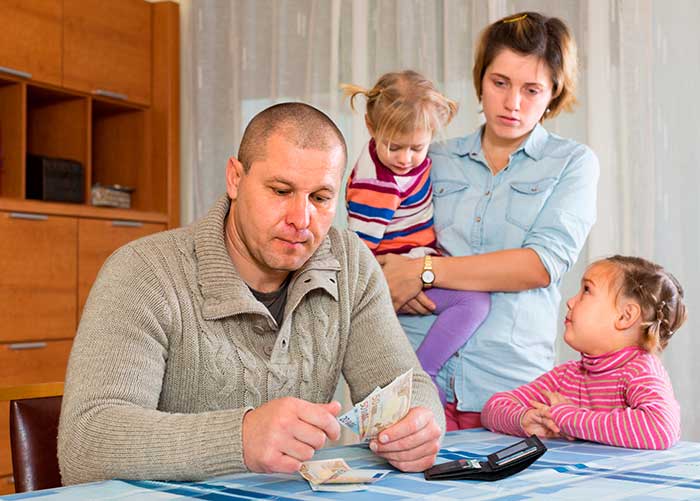poverty_shutterstock.jpg

A family counts their money
Eurofound said that large and lone-parent families in particular face significant difficulties, with more than eight out of ten lone-parent families at risk of poverty or social exclusion in some countries. Changes to welfare could also be creating new groups of disadvantaged families.
A report published by Eurofound yesterday highlighted Europe’s ambitious target to lift 20 million people out of poverty and social exclusion by 2020, and noted that “the EU is currently moving away from rather than towards that target” with 4.8 million more people falling into poverty since 2008.
It said that lone-parent families and large families with three or more dependent children face the greatest difficulties, and have seen their situation deteriorate since the crisis.
Differences in families’ situations across member states reflect the differing family policy regimes in each country. For example, in 2012 a large Bulgarian family was more than 13 times more likely to have difficulty making ends meet than a large Finnish family.
The report highlights a shift towards more means-tested support and away from universal support as creating new groups of disadvantaged families. A combination of sufficient universal and means-tested support is required, it said.
It added that changes to family policies since 2010 demonstrate a difficulty in equating the evolution of family needs with greater demands for cuts in public spending and the need for equitable distribution of resources.
Family policies often lack a coherent and integrated policy framework, and are increasingly developed in reaction to specific emergencies and political inputs rather than through coordinated and structural reforms, it said.
Other issues flagged up by the report include too-narrow definitions of what constitutes a family and the need for measures such as child care support or subsidised transport to accompany employment in order to combat social exclusion.













